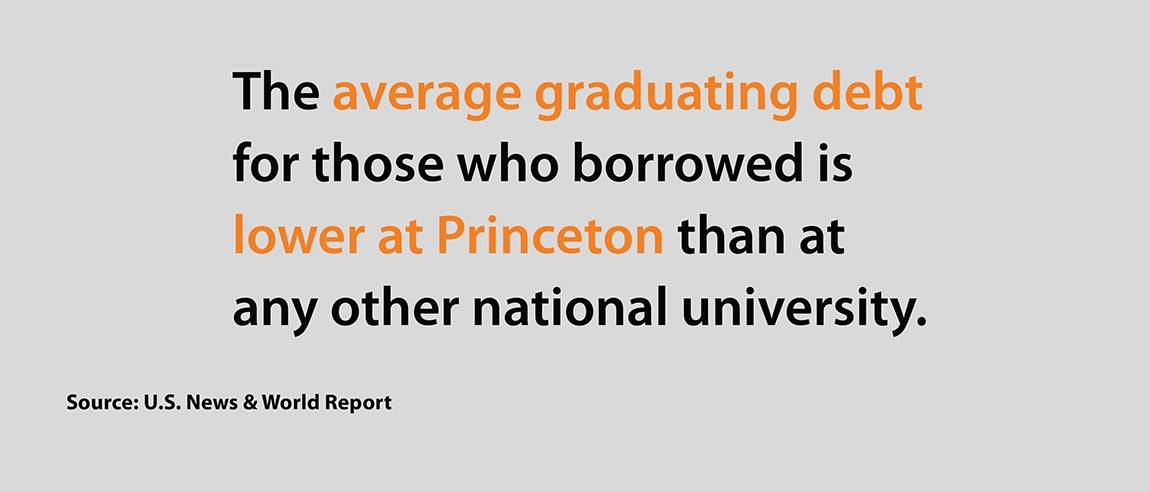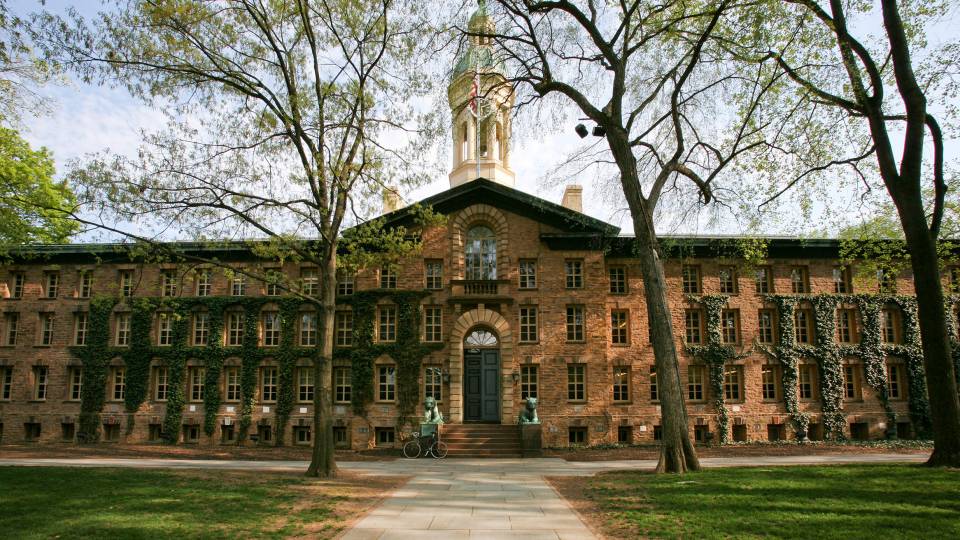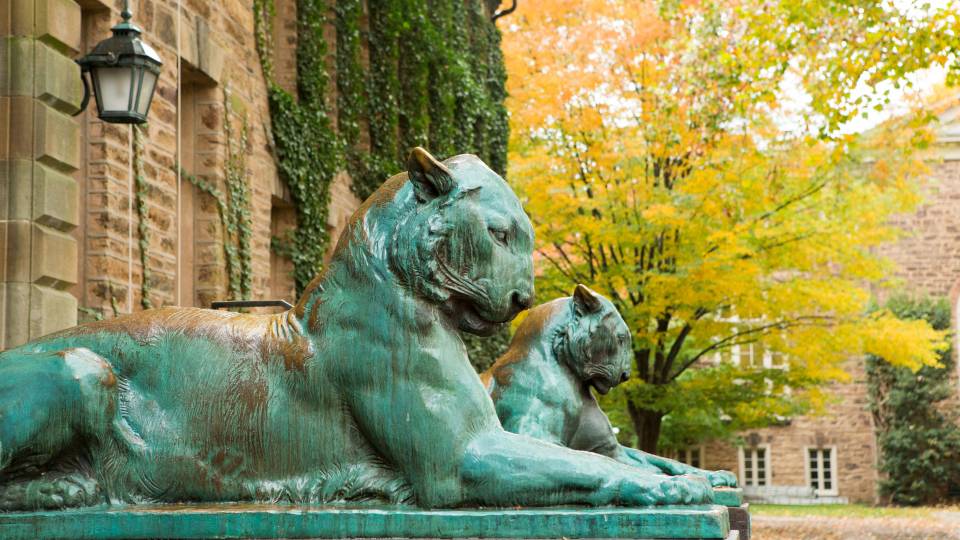Princeton University's endowment earned a 14.2 percent investment gain for the fiscal year that ended June 30, 2018. The endowment value stood at $25.9 billion, an increase of about $2.1 billion from the previous year.

The Princeton endowment supports the University's teaching and research mission and its outstanding financial aid programs for undergraduate and graduate students. Here, Sabine Petry, assistant professor of molecular biology, works in a laboratory with graduate student Akanksha Thawani.
The endowment is the financial foundation that underpins the University’s teaching and research mission and supports an exceptional financial aid program that makes it possible for students from all backgrounds to live and learn at Princeton without incurring debt.
The average annual return on the University’s endowment for the past decade is 8.0 percent, which places Princeton among the top percentile of 458 institutions listed by the Wilshire Trust Universe Comparison Service.
The Princeton University Investment Co. (PRINCO), the University office that manages the endowment, will certify the results during a meeting of its directors on Oct. 18, 2018.
"The earnings from our endowment cover more than half of the University’s annual operating budget, as well as help fund our highest priority strategic initiatives,” Provost Deborah Prentice said. “Those initiatives include our long-standing commitment to providing access to a Princeton education to students from all economic backgrounds, making it possible for them to attend regardless of ability to pay and without the need to take out loans. Without a strong endowment we would not be able to support our students in the way that we do.”
The endowment is made up of more than 4,000 funds that have been established since the University’s founding in 1746, created to provide a scholarship for undergraduate financial aid.
The endowment supports the scholarship, teaching and research of Princeton’s outstanding faculty members. The University has more than 200 endowed professorships honoring the most distinguished professors. Many endowed professorships were given by alumni to further the intellectual and pursuits of faculty and to broaden University research into new areas of discovery that benefit human society.
Without a strong endowment we would not be able to support our students in the way that we do.
— Provost Deborah Prentice
The endowment also supports the classrooms, laboratories, libraries and academic programs as well as campus life priorities including athletics and religious life.
In addition to supporting daily operations, the endowment is set up to sustain the University for many decades to come, through periods of economic growth as well as through downturns and recessions.
Earlier this year, Princeton trustees approved a 7.7 percent increase in undergraduate financial aid to $174.2 million in the University's operating budget for the current year. Endowment funds cover well over 80 percent of the undergraduate aid budget.
As a result of the University’s efforts to increase the socioeconomic diversity of the student body, 20 percent of the incoming Class of 2022 received Pell grants, up from 7.2 percent for the first-year Class of 2008.
Typically, Princeton undergraduates from families with the U.S. median household income of $65,000 pay no tuition and their average grant also covers room, board and fees. Most students from families with incomes up to $160,000 pay no tuition, and for an average family with income around $180,000, an average package covers about 75 percent of tuition. Students from families with incomes above $250,000 may qualify for some aid.
The endowment also supports graduate students and their research. All Ph.D. students are fully funded for the entirety of their regular program length, and the majority of master's programs are funded, either partially or fully. Nearly 30 percent of the latest cohort of domestic graduate students are first-generation college students or from low-income backgrounds.

U.S. News & World Report recently ranked Princeton University first on its lists of schools for best value and lowest student debt at graduation. The average graduating debt for those who borrowed is lower at Princeton than at any other national university on the U.S. News list.



